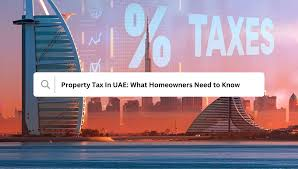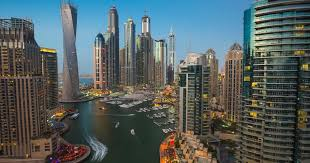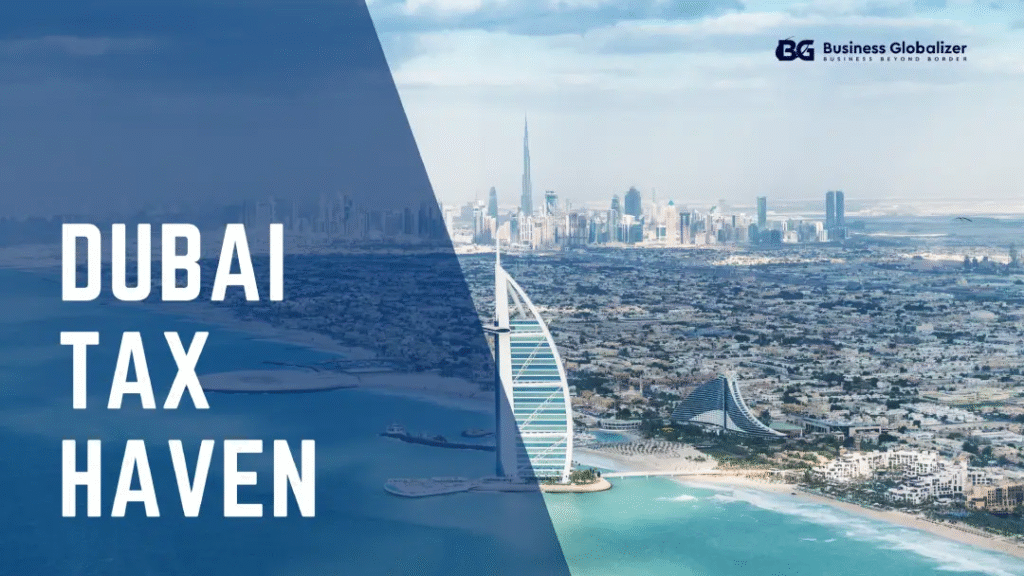
Smart Tax: Dubai’s real estate market in 2025 is a magnet for first-time investors, with 99,000 transactions worth AED 326.7 billion in H1 and projected 5-9% price growth, per Dubai Land Department (DLD) data. Offering 6-10% rental yields and no personal income tax, capital gains tax, or VAT on residential leases and first sales, Dubai maximizes returns. Qualifying Free Zone Persons (QFZPs) in Jebel Ali Free Zone enjoy 0% corporate tax on qualifying income if non-qualifying mainland income is below 5% or AED 5 million, and SMEs are exempt from the 15% Domestic Minimum Top-up Tax (DMTT).
The First-Time Home Buyer Programme, launched July 2025, provides 5% discounts on properties up to AED 5 million, registered via the Dubai REST app, while Golden Visa eligibility for AED 2 million+ investments adds residency perks. However, hidden costs like the 4% DLD transfer fee and 2% agency commission (+5% VAT) can add 6-8% to budgets.
Below are seven smart tax tips to help first-time investors navigate Dubai’s tax-efficient market, ensuring high ROI in zones like Jumeirah Village Circle and Dubai South.
The First-Time Home Buyer Programme, launched July 2, 2025, offers UAE residents aged 18+ with a valid Emirates ID a 5% discount on properties up to AED 5 million, saving AED 50,000 on a AED 1 million JVC apartment. Eligible buyers, who have never owned freehold property in Dubai, can access flexible 70/30 or 80/20 payment plans from developers like Emaar or Damac.
Register via the Dubai REST app, providing Emirates ID and proof of no prior ownership. Combine this with 0% VAT on first-time residential sales to reduce costs, but budget for the 4% DLD fee (e.g., AED 40,000 on AED 1 million). Verify eligibility with DLD and target off-plan projects in Dubai South for maximum savings.
Residential properties, including apartments and villas in freehold zones like Dubai Marina, are zero-rated (0% VAT) for first-time sales and exempt for subsequent sales or leases. Buying a AED 1.5 million apartment in Business Bay incurs no VAT, saving AED 75,000 compared to a commercial property’s 5% VAT.
Hotel apartments or commercial spaces, like offices in Downtown Dubai, face 5% VAT on purchase or lease, adding AED 150,000 to a AED 3 million office. Confirm the property’s residential status via DLD’s title deed and developer contracts to avoid unexpected VAT. This ensures tax-free rental income (e.g., AED 90,000 annually at 6% yield) and capital gains, boosting ROI.

If planning to rent out properties, establish a Qualifying Free Zone Person (QFZP) entity in Jebel Ali Free Zone to secure 0% corporate tax on qualifying income, like international or free zone-derived rental revenue. This applies if mainland income stays below 5% or AED 5 million annually. For a AED 2 million villa in Dubai Hills Estate yielding AED 160,000 yearly, a QFZP structure avoids the 9% corporate tax (AED 14,400).
Setup costs AED 10,000-15,000, but tax savings outweigh this for high-income portfolios. Use a DIFC or RAK ICC entity for offshore ownership to further avoid 9% rental tax. Consult a UAE tax advisor to ensure compliance with Federal Tax Authority (FTA) rules.
Invest in off-plan projects with sustainable features, like solar panels or smart HVAC systems, to benefit from 30-50% R&D tax credits on construction costs, per UAE incentives. Developers like Sobha and Qube pass these savings as 5-15% discounts on units in Dubai South or Sobha Hartland. For a AED 1.5 million eco-certified apartment, this could save AED 75,000-225,000.
These projects align with Dubai’s Net Zero 2050 goals, offering 7-9% yields and 8-12% capital gains by 2028. Verify sustainability certifications (e.g., LEED, Al Sa’fat) via DLD or third-party auditors to ensure eligibility, enhancing tax-efficient returns.
Hidden costs like the 4% DLD transfer fee (AED 40,000 on a AED 1 million property), 2% agency commission (+5% VAT, AED 21,000), conveyancing fees (AED 6,000-10,000 + 5% VAT), and service charges (AED 10-25/sq.ft.) add 6-8% to purchase costs. For a 1000-sq.ft. JVC unit yielding AED 60,000 annually (7.5% gross), AED 12,000 service charges cut net yield to 4.8%.
Negotiate DLD fee splits with sellers in off-plan deals or target developers offering waivers, like Emaar in Dubai Hills Estate. Check RERA’s Mollak Service Charge Index for community-specific rates and budget 10-15% contingencies to maintain ROI.
Foreign investors must account for home-country taxes despite Dubai’s 0% capital gains and income tax. U.S. investors report gains on IRS Form 1040, facing 0-20% CGT, but can offset via the U.S.-UAE Double Taxation Agreement using Form 1118. The $130,000 Foreign Earned Income Exclusion doesn’t apply to passive rental income, so consult a tax advisor.
Indian investors comply with the Liberalised Remittance Scheme ($250,000 limit) and report foreign assets on ITR-2/3, per Income Tax Act. Muslim investors calculate 2.5% Zakat on rental income (e.g., AED 2,500 on AED 100,000). Use a UAE-based entity to minimize foreign tax exposure and ensure compliance with DLD reporting.
Invest AED 2 million+ in properties like those in Damac Islands or Emaar Beachfront to qualify for the 10-year Golden Visa, offering residency without tax obligations. Developers often waive visa processing fees (AED 3,000-5,000) for off-plan purchases, saving costs.
A AED 2 million apartment yielding 8% (AED 160,000 annually) retains full tax-free income, with 10-15% capital gains by 2028. Submit title deeds, passports, and NOCs (AED 500-5,000) via DLD for visa approval. Combine with First-Time Home Buyer discounts for eligible properties to reduce costs. This secures long-term residency and tax-free returns, enhancing investment stability.
Dubai’s tax-free environment 0% VAT, income, and capital gains taxes drives 6-10% yields and 8-15% capital gains, with JVC (7.25% yields) and Dubai South (28% rental growth in 2024) leading. Hidden fees and home-country taxes can erode 10-25% of returns if ignored. The First-Time Home Buyer Program and Golden Visa, alongside QFZP structures, amplify savings.
RERA escrow accounts and 90-95% occupancy rates mitigate risks like delays, despite 76,000 new units in 2025. Infrastructure like Metro Blue Line and Al Maktoum Airport, plus 25 million tourists, fuel demand, per DLD’s AED 761 billion 2024 transactions.

Dubai’s 6.2% GDP growth and Economic Agenda D33 ensure a robust market. Off-plan sales (70% of Q1 2025) offer 15-20% appreciation by handover, but budgeting for fees like 4% DLD and service charges is key. Developer incentives, like DLD waivers and 5-20% discounts, offset costs.
By applying these tax tips leveraging buyer programmes, prioritizing residential properties, using QFZP entities, claiming R&D credits, budgeting fees, optimizing foreign taxes, and securing Golden Visas first-time investors can maximize ROI in a tax-efficient market.
These seven tax tips First-Time Home Buyer discounts, residential VAT exemptions, QFZP structures, R&D credits, fee budgeting, home-country tax planning, and Golden Visa perks empower first-time investors in Dubai’s 2025 real estate market. With 6-10% yields, 8-15% capital gains, and a tax-free framework, strategic planning ensures high returns and residency benefits in zones like JVC and Dubai South, cementing Dubai as a global investment leader. Smart Tax
read more: Dubai Real Estate Taxation: 5 Corporate Rules Expats Should Understand in 2025
